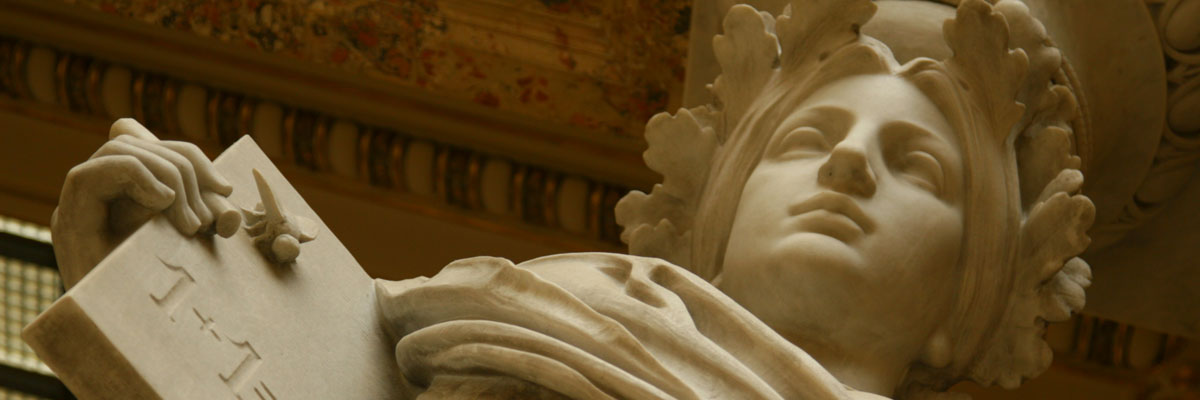
News archive
Search
Selected range: all newsFor raw water to turn into drinking water, it must go through a process of complex purification which first removes any physical impurities. This is achieved thanks to a process called coagulation, which is not, however, equally effective in all cases. In order for water treatment plants to adjust the purification process as needed, they have to test the water. Lacking a comprehensive manual until now, water treatment plants can newly consult the just published handbook put together by experts from the Institute of Hydrodynamics of the CAS. The handbook is also available for free in electronic form.
Scientific societies are no private clubs, as one might think. Their role is indispensable: they further and develop knowledge, but also comment on social issues. What is their history, purpose, and relationship to the Czech Academy of Sciences? The President of the Council of Scientific Societies, Lubomír Hrouda, and the former President of the Learned Society, Pavel Jungwirth, explained the aim of these organisations and their relationship to the Czech Academy of Sciences in the April issue of the AB / Academic Bulletin e-magazine.
Polarography, a ground-breaking analytical method in physical chemistry which has found application in dozens of fields, recently celebrated its centenary. The current results from researchers at the J. Heyrovský Institute of Physical Chemistry of the CAS are also promising for a variety of industries ranging from food and energy to healthcare. The search for technological innovations and establishing cooperation between science and industry was the focus of a conference held as part of the series Physical Chemistry for the 21st Century – from polarography to nanotechnology.
Taking care of a family is hard work. Not only are cuckoos well aware of this, but some species of fish are as well – for instance, catfish found in Lake Tanganyika in Africa. They prefer to leave the care of their offspring to others, perfecting their strategy for tricking the hosts over the course of their lives. The learning process of the cuckoo catfish has been described by researchers from the Institute of Vertebrate Biology of the CAS. Their findings were published in the prestigious scientific journal Nature Communications.
Two new high-energy gamma-ray Cherenkov telescopes are now observing the skies from the observatory of the Astronomical Institute of the CAS in Ondřejov, Czech Republic. The largest optical telescopes in the country, they are currently focusing their attention on the Crab Nebula. After completing a trial run, plans are to move the telescopes from Ondřejov further away from civilisation to higher altitudes in South America.
The most accurate method of nuclear reaction analysis, accelerator mass spectrometry (AMS), is capable of detecting up to a million times less radionuclides than other methods. Its help is invaluable in archaeology, geology, and climate change research. Experts in nuclear forensics, a discipline that monitors compliance with international non-proliferation of nuclear weapons commitments, also utilise AMS. A new unique laboratory equipped with this technique was inaugurated on 9 May 2022 at the Nuclear Physics Institute of the CAS in Řež, Czech Republic, by the President of the CAS, Eva Zažímalová, and the Czech Minister for Science, Research, and Innovation, Helena Langšádlová.
Millions of years ago, fungi made it possible for plants to make the transition from water to land, and they continue to help them to this day by being a source of hard-to-find nutrients and helping their hosts overcome stress. What does the partnership between fungi and plants look like? How do they communicate and exchange important nutrients? Read below to find out.
In the coming years, the Czech energy sector will be defined by the global geopolitical situation and the related search for alternatives to natural gas as well as the development of nuclear resources. A consensus was reached for the most part by representatives of the scientific community and other sectors at a seminar entitled "The Current Tendencies of the Czech Energy Sector", organised by the CAS Energy Research Committee and the Environmental Committee.
The subject of thrift at a time of war in Ukraine, rising commodity prices, and climate uncertainty resonates in the public sphere. But behind this seemingly simple and universally valid idea lies a world of paradoxes. In the new publication Thrift & Its Paradoxes: From Domestic to Political Economy, an international team of experts presents the diversity of perceptions and practices of thrift in various parts of the world.
In the years to come, one of the priorities of the Czech Republic is to become a European leader in science and research. This is also why the Czech Academy of Sciences will play an active role in the Czech Presidency of the Council of the European Union. The proposed objectives and more were presented by the 59th session of the Academy Assembly, which took place at the National House Vinohrady in Prague on 20 April 2022 in the presence of Prime Minister Petr Fiala and Minister for Science, Research and Innovation Helena Langšádlová.
The Czech Academy of Sciences (the CAS)
The mission of the CAS
The primary mission of the CAS is to conduct research in a broad spectrum of natural, technical and social sciences as well as humanities. This research aims to advance progress of scientific knowledge at the international level, considering, however, the specific needs of the Czech society and the national culture.
President of the CAS
Prof. Eva Zažímalová has started her second term of office in May 2021. She is a respected scientist, and a Professor of Plant Anatomy and Physiology.
She is also a part of GCSA of the EU.









